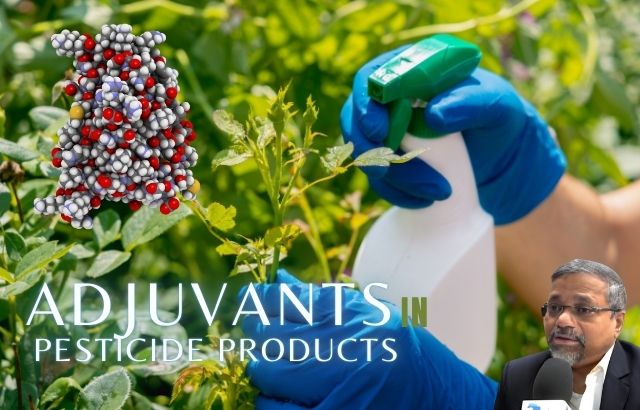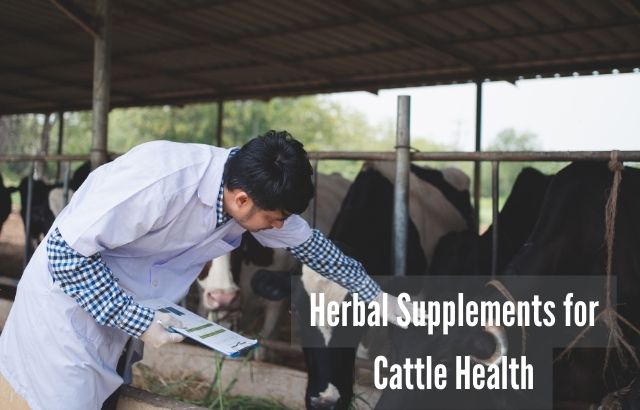The role of green innovators is crucial in shaping the future of sustainable farming and livestock management. Green innovators are individuals, organizations, or enterprises that prioritize environmentally friendly technologies, practices, and products. In the context of holistic livestock care, these innovators are key players in making the shift toward more ethical, eco-conscious, and health-oriented approaches to farming. Their contributions are not only enhancing livestock well-being but are also shaping a more sustainable and ethical agricultural system for the future.
Here’s a deeper look at the role of green innovators in fostering good products in the realm of holistic livestock care:
1. Development of Sustainable Feed Solutions
Green innovators are at the forefront of developing sustainable feed formulations that are both nutritious and eco-friendly. These innovators work on creating plant-based protein sources or alternative grains that require fewer natural resources to grow, reducing the environmental impact of conventional livestock feed.
Additionally, they may explore the use of insect protein or algae-based supplements that offer highly nutritious and sustainable alternatives to traditional animal feed. By prioritizing locally sourced, organic ingredients and non-GMO feeds, innovators ensure that livestock nutrition supports both animal health and the integrity of the surrounding ecosystem.
2. Herbal and Plant-Based Remedies
Many green innovators are pioneering the use of plant-based medicine and herbal remedies to support animal health. Beyond traditional herbs like chamomile, garlic, and nettle, these innovators explore lesser-known plants with healing properties, such as turmeric for inflammation or echinacea for immune system support.
The shift toward these natural alternatives reduces dependence on synthetic drugs and antibiotics, which can have long-term negative effects on both the environment and the livestock. By developing herbal blends, infusions, or topical ointments, innovators make it possible to treat common health issues in animals in a holistic, natural way, aligning with the principles of sustainability and animal welfare.
3. Eco-Friendly Pest Management Solutions
The agricultural sector has long struggled with the detrimental effects of chemical pesticides and their impact on ecosystems and non-target species. Green innovators are leading the charge to replace toxic chemicals with natural pest control options that don’t harm livestock or the environment. Methods such as biological control, integrated pest management (IPM), and organic repellents are gaining popularity as environmentally responsible alternatives.
One innovative approach includes the use of beneficial insects, like ladybugs or predatory mites, which naturally control pest populations without causing harm to the soil or crops. Neem oil, an all-natural pesticide, is another excellent alternative being promoted by green innovators. By prioritizing these methods, these innovators not only protect livestock health but also contribute to soil and water conservation.
4. Designing Stress-Reducing Environments
A fundamental aspect of holistic livestock care is the focus on reducing stress. Stress negatively impacts both physical health and mental well-being in animals, leading to reduced productivity, compromised immune systems, and other health complications. Green innovators are exploring new ways to design low-stress environments for animals, whether through architectural innovation or behavioral science.
For example, the development of free-range systems, spacious barns with natural ventilation, and curved or non-rectangular pen designs are some ways in which innovators are improving the quality of life for livestock. Incorporating natural elements, such as plants, water features, and natural light, can also reduce stress levels. These innovations can improve the well-being of the livestock while ensuring better product quality for consumers.
5. Circular Economy and Waste Reduction
Green innovators are also making significant strides in reducing the waste footprint of livestock farming. This includes the development of closed-loop systems that reduce resource waste and encourage sustainability. For example, the practice of composting animal manure not only benefits the soil but also reduces the need for synthetic fertilizers, which can damage the environment.
Some innovators are working on creating biogas production systems that convert livestock waste into renewable energy, offering a way to harness the power of organic waste while reducing greenhouse gas emissions. These sustainable practices are important for transitioning to a more eco-friendly agricultural model, where waste is minimized and valuable resources are recycled.
6. Improving Animal Health Through Alternative Therapies
Green innovators are also incorporating alternative therapies into livestock care, which focus on holistic health rather than just disease prevention. These therapies might include acupuncture, chiropractic adjustments, and massage designed to enhance circulation, ease pain, and improve overall well-being.
Integrating such therapies into the livestock care routine can minimize the need for pharmaceutical interventions, helping to reduce reliance on antibiotics and painkillers. By combining these therapies with conventional veterinary care, green innovators provide livestock with a more balanced, integrated approach to health.
7. Sustainable Packaging and Product Traceability
The impact of livestock farming extends beyond the farm, with product packaging and distribution also contributing to environmental concerns. Green innovators are addressing this by developing eco-friendly packaging solutions, such as biodegradable wraps, recyclable containers, or reusable packaging for meat, dairy, and other animal products.
Additionally, these innovators are making strides in product traceability, ensuring consumers have access to information about where their food comes from, how it was produced, and the farming practices involved. This transparency not only empowers consumers to make more informed purchasing decisions but also promotes responsible and ethical farming practices.
Conclusion: Green Innovators as Pioneers in Holistic Livestock Care
The role of green innovators in holistic livestock care is vital to ensuring that farming practices evolve in ways that are not only sustainable but also supportive of the well-being of the animals and the health of the planet. By integrating natural remedies, reducing waste, improving animal living conditions, and developing eco-friendly technologies, these innovators are shaping a more conscious and compassionate agricultural future.
Their efforts extend beyond the individual farm, helping to build a model of agriculture that prioritizes environmental health, ethical treatment of animals, and sustainable food production. For consumers, this means healthier, more responsibly produced products and a stronger connection to the natural world. For the planet, it means a reduction in the environmental footprint of livestock farming and a move toward a more balanced and regenerative system.
In a world that’s increasingly looking for ethical, sustainable, and transparent products, the role of green innovators will continue to grow, offering solutions that not only benefit livestock but also promote long-term environmental stewardship.
About Author Jaiguru Kadam

Jaiguru Kadam is a pioneering green innovator and subject matter specialist in agriculture, focusing on sustainable and eco-friendly solutions. He is known for developing green solvents to reduce the environmental impact of chemical processes, green surfactants and adjuvants to enhance pesticide effectiveness while minimizing harm, and plant-derived herbicides and bioherbicides for more sustainable weed management. Kadam also advocates for green herbicide safeners that protect crops while controlling weeds, and works on developing eco-friendly animal feed supplements for poultry and aquaculture to improve animal health and reduce reliance on synthetic additives. Through his innovations, Kadam is driving the transition towards a more sustainable, environmentally responsible agricultural system that balances productivity with ecological stewardship.












